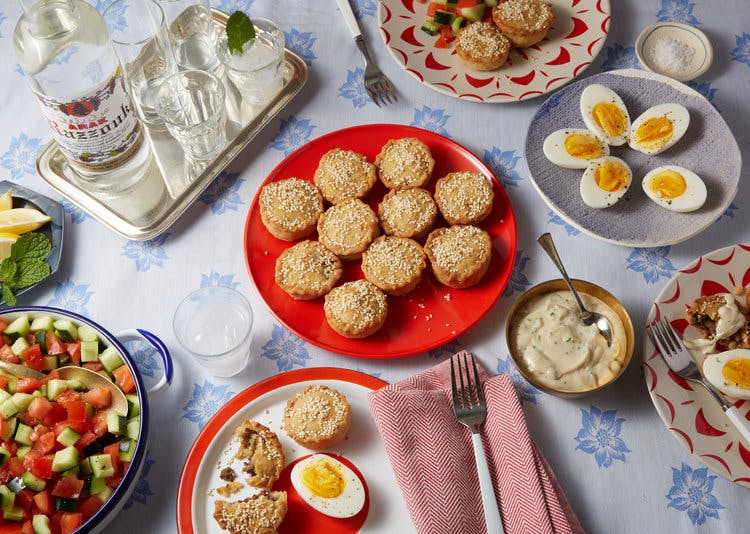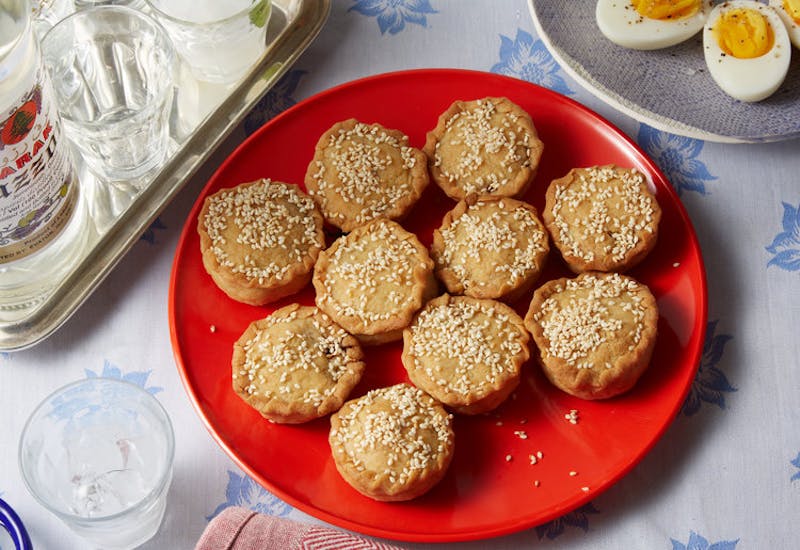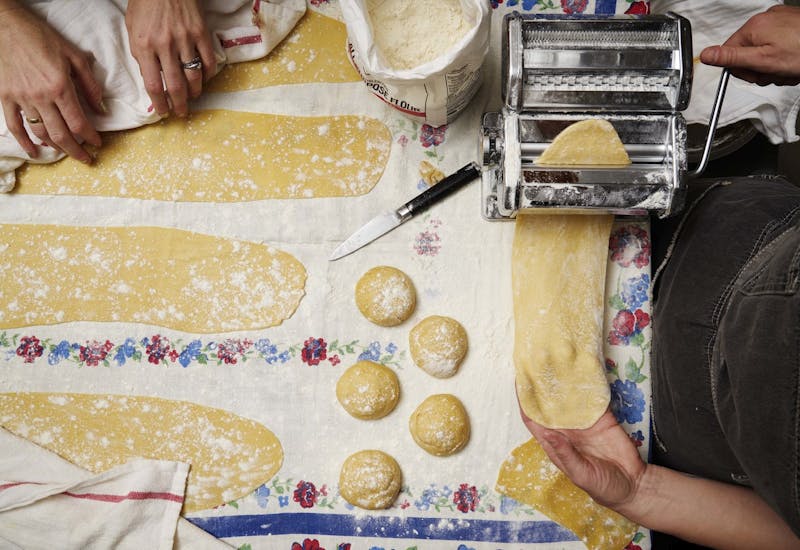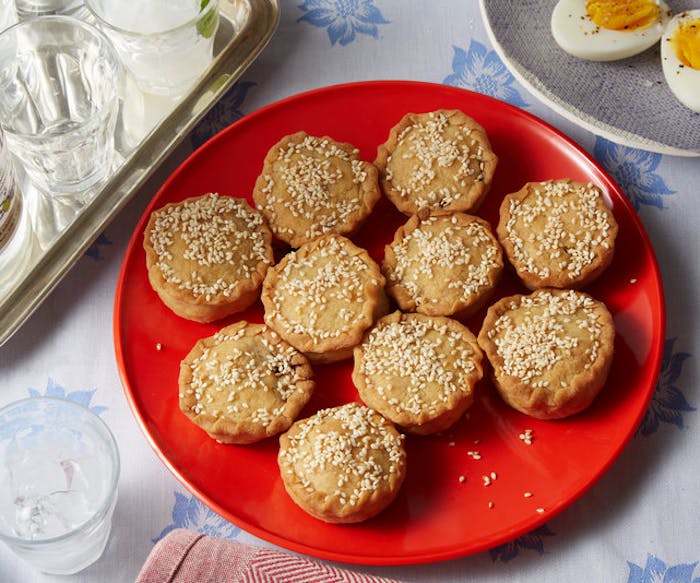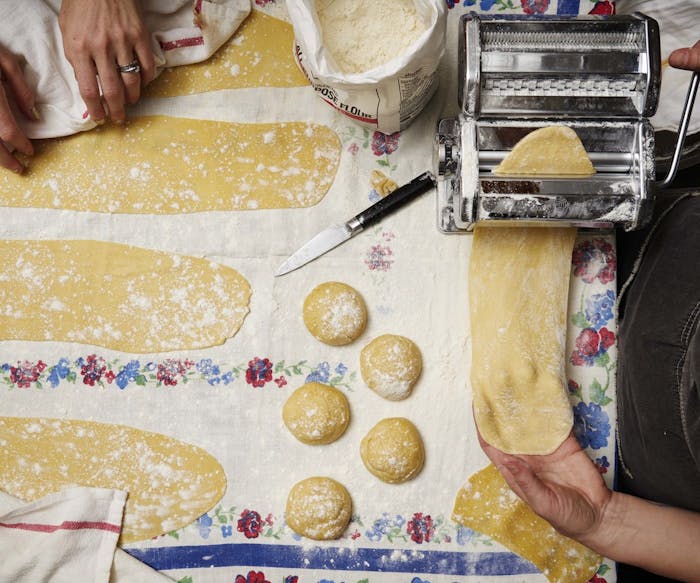Read more about Yedida Dabah in “A Shavuot Recipe That Spans 3000 Miles and Hundreds of Years” and try her recipe for calsones (pasta stuffed with cheese, sweet potato, mushrooms, or beet greens).
For Yedida Dabah, baking pastelicos, a Sephardic savory pastry filled with beef and pine nuts, is a way to keep the memory of her mother Dvora alive. Growing up in Jerusalem, pastelicos were part of Dvora’s Shabbat breakfast table along with hard boiled eggs, tahini, chopped vegetable salad, and a shot of Arak.
Her cooking was a rich reflection of her family’s Spanish roots. She was known for her medias: a Sephardic recipe for vegetables stuffed with meat, fried, and then simmered in tomato sauce. And numerous baked goods including bourekas, biscotti, baklava, cookies filled with almonds or dates dusted with powdered sugar that she baked for holidays, and biscochitos, savory round biscuits she kept on hand for an every day snack.
Today, Yedida tries to cook what she remembers from Dvora’s table. All of the dishes were made while Yedida and her sister were in school, so they wouldn’t get in the way, she explained to us as we cooked with her in her home in Mevaseret Zion, a suburb of Jerusalem. Instead of cooking, she and her sister were given the chore of cleaning the outside stairs. Nothing short of spotless was acceptable.
When Yedida was five-years-old, a family with roots in Aleppo, Syria moved into the apartment downstairs. As the children of the families became close, the doors to the apartments stayed open more frequently. On Friday afternoons, when both mothers, Dvora upstairs and Rachel downstairs, baked a cake for Shabbat, Yedida and her sister would divide and conquer the whisks, making sure each got one to lick. When Yedida was 14 and Rachel’s son Elli was 17, they started to date.
Neither Elli nor Yedida were formally taught to make their family recipes, but both managed to absorb some of the techniques along the way. Elli picked up his father’s recipe for a za’atar blend he made with dried and ground chickpeas and a taste for marinated artichokes that the family made and sold at a small store they owned nearby. And Yedida, who was finally welcomed into her mother and mother-in-law’s kitchens as an adult to watch them cook, learned how the two approached their specialties.
But, it wasn’t until their mothers passed away that Elli and Yedida started to cook Rachel and Dvora’s recipes in earnest. Yedida missed her parents and the tastes of her mother’s kitchen. Cooking has become a way of remembering for the family.
Today, she makes the pastelicos for her children and grandchildren, serving it as her mother did with tahini or, at times, drizzling them with tamarind sauce, a recipe that she picked up from Elli’s Halabi (a term for Jews from Aleppo) side of the family. Elli carries on the tradition of making his special za’atar blend, gathering and picking the za’atar leaves from the stems. And, he’s developed his own riff on the marinated artichokes with lemon slices, grape leaves, garlic, paprika and olive oil.
The next generation doesn’t make any of these recipes, Yedida explains. But she hopes one day, in the far future, they will return to them as a way to remember.
